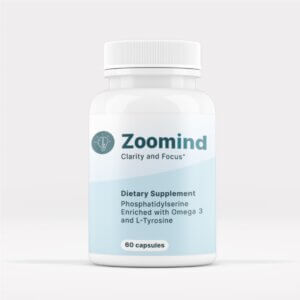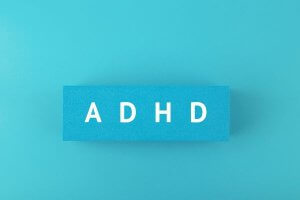
What is Chronic Fatigue Syndrome?
Chronic Fatigue Syndrome is characterized by persistent, unexplained fatigue that significantly impairs daily activities and is not relieved by rest. It’s a condition that often manifests with an impact on both the physical and psychological well-being of the patient.
Due partly to the lack of precise diagnostic tools, CFS was regarded as a purely psychological ailment for some time. However, current research supported by studies published on official government websites like the Centers for Disease Control and Prevention identifies its physiological foundations, causes, and effects and offers some insights into symptom management.
The World Health Organization now classifies CFS as a neurological rather than a psychological disorder.
What is the Relationship Between Energy Impairment and CFS?
Energy impairment is essentially at the core of CFS; it’s not just about feeling “tired” but about a systemic failure to produce and maintain energy at the cellular level, affecting every aspect of the body’s chemistry.
The relationship between energy impairment and CFS is complex. It involves various biochemical, physiological, and psychological aspects contributing to the fatigue and symptoms that define this condition.
The energy impairment in CFS isn’t solely related to movement. It extends to cognitive and emotional aspects. “Brain fog” reflects a cognitive energy impairment where mental tasks become exhausting or unmanageable. The emotional toll, which can come out as anxiety or depression, could also be viewed as a result of energy depletion.
Why Does Energy Impairment Particularly Impact People with ADHD?
Because the brain is so rich in nerve cells and neurons, it is the most energy-demanding organ in the body, using about one-half of all the sugar energy a person burns up every second.
The quality of brain functions, like thinking, memory, and learning, are closely linked to glucose levels and how efficiently the brain uses this fuel source.
Can ADHD Make You Feel More Tired?
Absolutely. Because the brain uses the most energy in the body, with ADHD, the non-stop brain goes into overdrive most of the waking time. The body will deplete its energy sources too quickly, and as a result, eventually, a person will feel more tired.
Why Do People With ADHD Have Trouble Sleeping?
It comes down to an imbalance in the specific neurotransmitters involved, as well as energy levels and an inability to slow the brain down. As a result, it’s constantly working, constantly consuming energy, and constantly needing high availability of neurotransmitters like dopamine, norepinephrine, serotonin, and melatonin. This makes it a significant challenge to “wind down” and shut the brain down and get to sleep or stay asleep.
How Can You Address Fatigue and Exhaustion in ADHD?
Some natural methods are in step with the brain’s in-built timekeeper, such as early morning sunshine and calming sunsets. As the sun rises and sets, it has been proven to help balance the circadian systems, which help us regulate sleep.
Also, balancing lipid imbalances in the body, addressed in compounds like phosphatidylserine, omega-3, and EPA, can help address fatigue and exhaustion in ADHD.
Who is at Risk of Chronic Fatigue Syndrome?
The demographics of which people are more likely to be subject to CFS are varied. Still, certain risk factors make some individuals more susceptible:
- Age: While it can affect people of all ages, CFS is most commonly diagnosed in people in their 40s and 50s.
- Gender: Some studies, such as one published by the Office on Women’s Health, indicate that women are more likely to be diagnosed with CFS than men.
- Genetics: According to the National Institutes of Health, inherited factors indicate a possible genetic predisposition, although this is still under investigation.
- Prior or concurrent illness: the condition often follows a known or apparent viral illness or bacterial infection, but a single cause has not been found. Suspects include mononucleosis, an H1N1 influenza infection, or an infection by the varicella-zoster virus (which causes chickenpox.)
What Are the Symptoms of CFS?
The primary symptom of CFS is extreme fatigue. However, a collection of other symptoms can accompany this fatigue:
- Energy impairment: Exertion – either physical, emotional, or intellectual – can severely impact someone with CFS, leading to post-exertional malaise (PEM), a hallmark symptom of the condition.
- Sleep Disorders: Unrefreshing sleep or insomnia are the most frequently occurring symptoms, exacerbating the feelings of fatigue.
- Cognitive Dysfunction: Often referred to as “brain fog,” patients report problems with memory, concentration, and executive function.
- Muscle and Joint Pain: Myalgia and arthralgia are common, and unlike the discomfort that can follow extreme exertion, the pain is persistent.
- Autonomic Symptoms include palpitations, low blood pressure, and temperature dysregulation.
How can CFS be Diagnosed?
Until recently, there have been no definitive laboratory tests or imaging studies for the condition. The diagnosis has to be clinical, mainly based on patient history and symptoms, generally requiring:
- Persistent fatigue for six months or more: Not related to exertion, not substantially relieved by rest, resulting in a significant reduction in former activity levels.
- Additional Symptoms: At least four other symptoms, such as cognitive issues, sore throat, and sleep problems, should also be present.
With these limitations, it would be necessary to exclude all other potential causes of the fatigue, necessitating blood screening, thyroid function tests, and sometimes even psychiatric evaluation to rule out mood disorders as the primary cause.
Recently, a breakthrough discovery of a blood test was announced on Psychiatry.com. It disclosed a new blood test for Chronic Fatigue Syndrome based on a single-cell Raman platform. It achieved a 91% accuracy in distinguishing CFS patients from healthy individuals and disease controls.
How is CFS Treated?
While no cure exists, managing CFS in an individualized and multidisciplinary approach can make symptomatic relief possible:
- Cognitive Behavioral Therapy (CBT): Several studies have shown that CBT can help patients manage the psychological impacts of the illness.
- Pharmacotherapy: Medications like low-dose antidepressants sometimes manage sleep and mood disturbances.
- Pacing and activity management: Patients are often advised to balance activity and rest to manage fatigue, sometimes called “pacing.”
- Nutritional supplements: There is some evidence that there can be relief from symptoms with the addition of the more common dietary supplements that are effective against ADHD, but evidence is still scarce.
Frequently asked questions
What nutrient deficiency causes chronic fatigue?
Some nutritional deficiencies are suspected as being involved as causes of CFS. These include deficiencies of vitamin B complex and vitamin C, mineral and trace elements such as sodium, magnesium, and zinc, and complex molecules including folic acid, essential polyunsaturated fatty acids (PUFAs), and coenzyme Q10 (CoQ10). CoQ10 helps convert food into energy and is a powerful antioxidant that fights free radicals, damaging cell membranes.
Do B12 shots help Chronic Fatigue Syndrome?
Vitamin B12 benefits most people suffering from chronic fatigue syndrome. Still, most patients also require high doses of folate and need weekly injections of B12 over the long term.
What are the skills for coping with chronic fatigue?
Prioritize sleep, save energy when possible, balance activities with rest, and find low-energy activities. Where possible, make dietary adjustments and add the necessary food supplements.
What is the recommended treatment for chronic fatigue syndrome?
Graded exercise therapy and cognitive behavior therapy have improved fatigue, work and social adjustment, anxiety, and post-exertional malaise.








